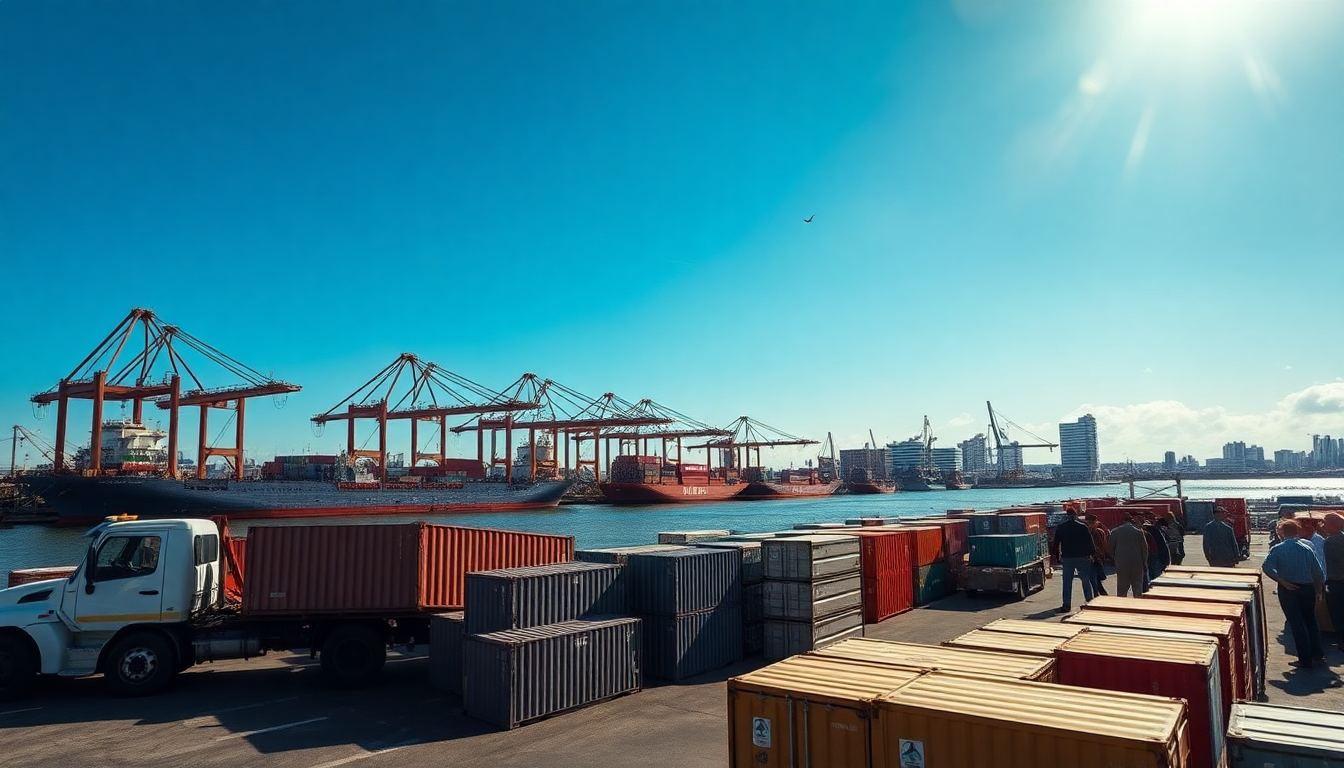Table of Contents
During a recent trip to Colón, Kevin Marino Cabrera, a key figure in Panama’s political scene, didn’t hold back when it came to criticizing the Panama Ports Company, which is part of the Hong Kong-based CK Hutchison conglomerate.
His strong words have sparked a lively discussion about the company’s effectiveness and its connections to local government. Cabrera labeled CK Hutchison as a ‘bad operator’ and even went as far as calling it a ‘company of the Communist Party.’ These statements mirror a growing frustration among Panamanian officials about how crucial port facilities are being managed.
Cabrera’s Critique and Its Context
Cabrera’s remarks come at a particularly sensitive time. The Panama Ports Company has been under the microscope since it secured a 25-year concession renewal back in 2021. He expressed hope, saying, “We are enthusiastic that they will soon no longer be operating those ports.” This sentiment is shared by many in Panama who are increasingly questioning the integrity of the concession renewal process.
Cabrera stressed the need for new operators that are not just reliable but also genuinely invested in the interests of the Panamanian people, suggesting that the current management falls short of these expectations.
Backing Cabrera’s position are recent actions by Panama’s Comptroller General, Anel Flores, who has taken the bold step of filing two lawsuits with the Supreme Court aimed at annulling the contract with the Panama Ports Company.
These legal moves allege that the renewal didn’t follow constitutional guidelines and involved financial irregularities that could have serious consequences for the future of port operations in Panama.
The Legal and Political Landscape
The ongoing legal battles are more than just courtroom drama; they signify a crucial moment for Panama’s port management and its interactions with foreign entities.
The lawsuits initiated by Flores could set a new standard for how concessions are handled in the future. This could lead to increased transparency and ensure these deals are genuinely beneficial for the local economy. The stakes are high, as these developments could dramatically reshape one of the country’s most vital economic sectors.
Moreover, Cabrera’s comments resonate with a growing national sentiment that prioritizes local interests over foreign corporate influence. This shift could very well inform public policy and modify the criteria for future contracts and partnerships with international firms. As this debate unfolds, one big question looms: can the current operators adapt to these emerging expectations, or are we on the brink of a new approach in Panama’s port operations?
Future Considerations for Panama’s Ports
As Panama finds its way through this complex situation, attention is shifting to the economic impacts of any changes in port management. Balancing international investment in Panama’s infrastructure with the need for accountability and community benefits will be crucial. Stakeholders—including investors and policymakers—will need to engage in open conversations to ensure that any management transitions not only foster economic growth but also contribute to community development.
Looking ahead, the outcomes of the legal battles and the political discussions surrounding CK Hutchison will likely shape investor confidence in Panama’s port sector. A transparent and reliable management system could make Panama an even more attractive destination for international investment, especially in logistics and transportation. On the flip side, ongoing instability might scare off potential investors, prompting a reassessment of the region’s significance in global trade.





